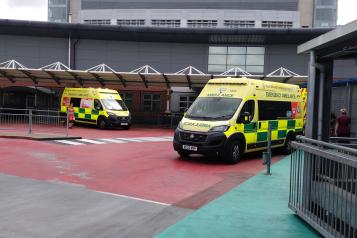The Darzi Review – what it means for Coventry

The review of the NHS by the peer and NHS surgeon Lord Darzi produced headlines stating that the service is in “a critical condition”. He said that it is in "serious trouble”. Lord Darzi was not asked to offer solutions but to identify failings. The Prime Minister, Sir Keir Starmer, immediately followed the publication of the report by saying what was required was a digital revolution, moving care out of hospitals and into the community, and a greater emphasis on preventing people becoming ill in the first place. A new ten-year plan is expected to be published in the New Year.
A similar report about the NHS was written by Lord Darzi seventeen years ago but instead of actions similar to those likely to be in the Government’s plan next year, the changes that followed focused on management structures. There has been little attention in recent years to those things that patients, responding to Healthwatch Coventry, have regularly told us about.
Unlike other parts of the country Coventry has, in UHCW, a large, modern hospital. Like other hospitals, UHCW must deal with the issues of waiting lists, extreme pressures on A&E, maintaining necessary staffing levels and the provision of the latest technology, but it generally performs better than hospitals elsewhere. Other locations have hospitals which Lord Darzi says have buildings in a poor state of repair and are lacking investment in technology and equipment.
Coventry patients have told us that they struggle, like people in other places, with difficulties faced by primary care, in particular GP surgeries. Some practices have made significant efforts to address the problems of people getting appointments, but the infamous “eight o’clock rush” to get through on the telephone still ends in frustration for many. Being able to see your Doctor face to face continues to be hard to achieve for many.

Patients say that they want to see the Doctor, rather than a nurse or a paramedic which often is the health professional available. In part, that is likely to require a change in thinking for many of us and an understanding that there are other members of your local practice team who can appropriately respond to your concerns apart from the Doctor. That is important because the local surgery represents the entrance to treatment and care for most of us. Appreciating that we can be dealt with by someone other than the GP is a small step we can all take.
Lord Darzi stressed that for any reform of the NHS to succeed, the views of the patients should be taken into account, but he says “the patient voice is not loud enough.” He adds “patient satisfaction with services has declined and the number of complaints has increased, while patients are less empowered to make choices about their care. A familiar theme in inquiries into care failings has been patients’ concerns not being heard or acted on”.
Healthwatch exists to provide a platform for the opinion of patients to be heard, but for Healthwatch Coventry and the other local Healthwatch organisations across the country to be effective, any reform should surely also include a stronger, reinforced role for Healthwatch. Its funding should be ring-fenced to enable it to properly reflect the views of those the NHS exists to serve. By doing so, we are more likely to see the healthier population that Lord Darzi correctly advocates and a reduction in the health inequalities that currently frustrate the way forward.
Lord Darzi’s report has laid out some home truths about an institution that is essential to us all. The response of the Government will determine the future of health and social care in Coventry and elsewhere.


